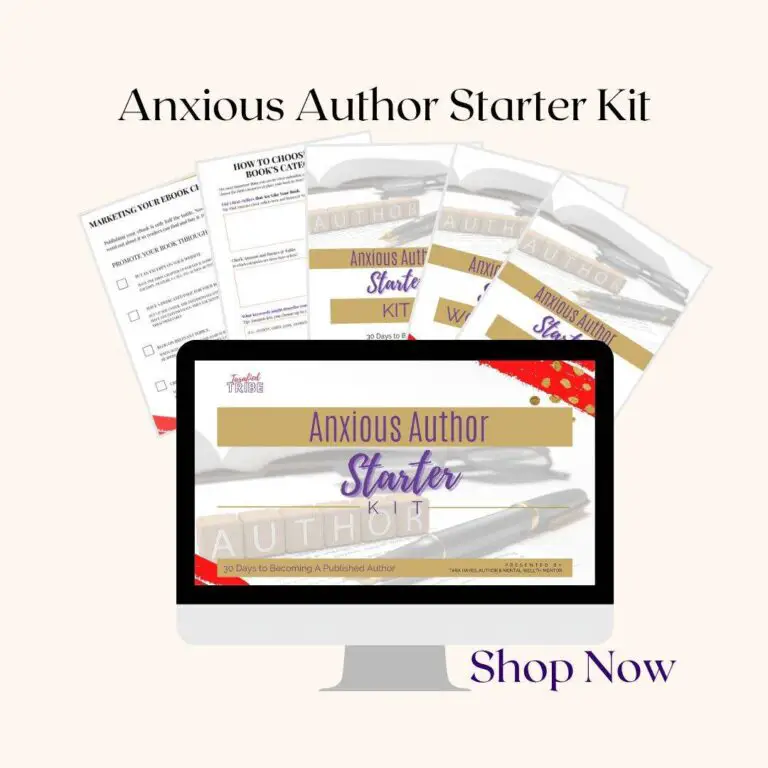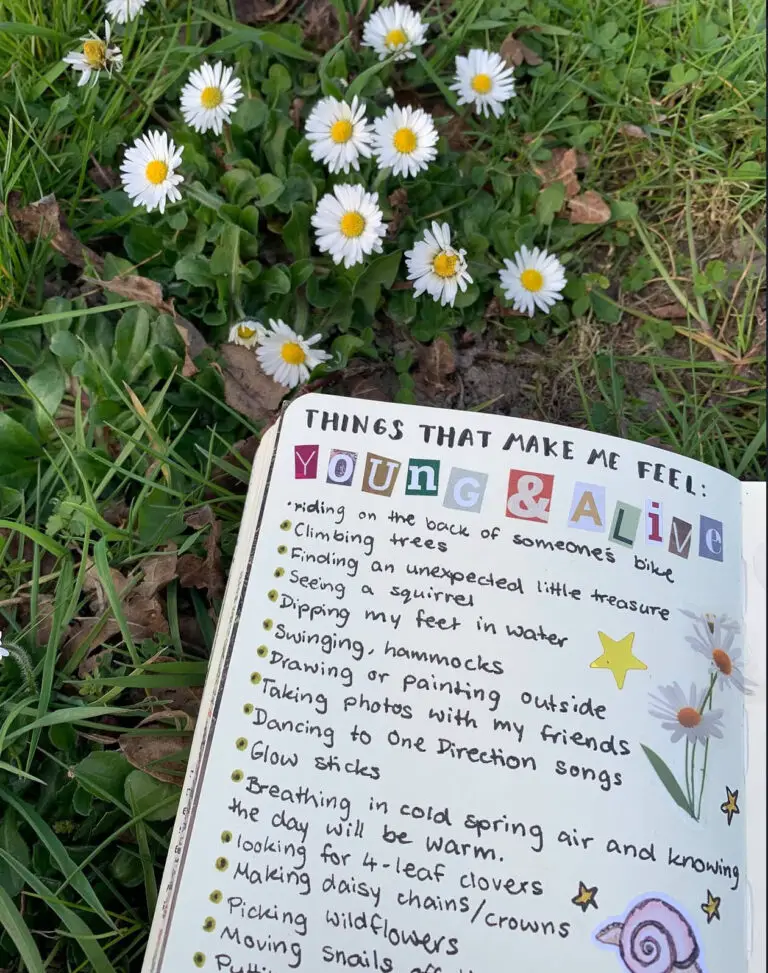30 Daily Positive Thinking Journal Prompts to Boost Your Happiness

Positive thinking: everyone knows they should do it more often, but many people struggle with actually committing to it. Viewing the glass as half full rather than half empty can be surprisingly difficult most of the time. When you’ve got a lot on your plate, as a lot of us do, it’s all too easy to get lost in the inconveniences that life throws your way.
If you tend to be more of a Negative Nancy but want to change your ways, first of all, keep reading this article. I’m going to provide you with 30 positive thinking journal prompts that could be crucial in altering your pessimistic mindset, or even just improving your overall quality of life. And second of all, I’m proud of you! As someone who gravitates towards negative, anxious thinking myself, it’s a very commendable step for you to acknowledge the importance of change.
You’d be surprised by the impact that answering positive thinking journal prompts can have on mental health. It’s been proven that journaling reduces anxiety levels and increases self-awareness, which is ultimately vital in increasing overall happiness.
Whether you focus more on positive thinking journal prompts relating to gratitude, future aspirations, or growing self-confidence, writing in a generally optimistic manner about your life is sure to impact the way you feel on a day-to-day basis. Looking back at your journal entries over time, you’ll be pleasantly surprised to see how your mindset has grown more positive throughout your writing.
So, if you’re ready to embark on a journey of life-altering mindset shifts, let’s get into these 30 positive thinking journal prompts to boost your happiness and inner peace.
Why Positive Thinking Journal Prompts Matter

You’re probably wondering what proof there is that journaling really is beneficial to mental health and well-being. There’s a lot of evidence for this fact, found through various research papers and professionally conducted studies.
In research published by the National Library of Medicine, for example, positive affect journaling was shown to decrease mental distress, depressive symptoms, and anxiety among a population of adults with varying medical conditions. There are countless such studies, including others by the University of Rochester Medical Center and Psychology Today, that offer the same conclusions.
When you think about these statistics, though, is it so surprising? It makes total sense that by actively highlighting any positive aspects about your current, past, or even potential future life, your state of well-being would noticeably progress.
However, an overall happier lifestyle isn’t the sole benefit of positive journaling. Following positive thinking journal prompts is vital for personal growth and self-reflection. By focusing on positive aspects of your life, it gradually becomes easier to regulate negative emotions and lead a life that is more fulfilling for you. A big part of growth is happiness and knowing what makes you truly feel good. Positive journaling can be a big part of that.
By sitting down with some positive thinking journal prompts each day, you’re also sure to grow into the habit of staying consistent. I tend to struggle with incorporating new things into my daily routine. But keeping a schedule with journaling has helped me have a steadier routine and truly commit to things I enjoy doing.
How to Use Positive Thinking Journal Prompts Effectively

The first (and perhaps most important) step to being successful with positive thinking journal prompts is establishing a set time for writing. Whether that be first thing in the morning or last thing at night, choose a time that you know will work for you every single day.
Life is unpredictable, of course, but by deciding on a time slot that’s always available in your routine, you’ll be much more likely to keep journaling in your everyday schedule. I like to write at night, just before I go to sleep. It’s a great way for me to unwind and feel at peace after enduring all the stress of the day.
I usually write when I’m cozy in bed – that’s where I feel the most comfortable, both physically and emotionally. Having a relaxing space in which you can engage in focused, uninterrupted writing is a crucial aspect of getting the most out of positive thinking journal prompts. The more open and at peace you are while writing, the more enlightening your entries will be.
I will say, though, adding new things into your routine can be tricky. It’s easy to just keep procrastinating your commitment for convenience’s sake. However, you can overcome this sense of apathy in a couple of different ways. For example, set consistent reminders to write at your designated time, or even just celebrate in a small way every time you feel you’ve had a productive writing session.
Building a habit of positive journaling can subsequently make positive thinking a natural part of your day and an automatic reflex in your mind! Whenever you feel unenthusiastic about sitting down to answer some positive thinking journal prompts, just remember how important the results will be in the long run.
30 Positive Thinking Journal Prompts for Daily Happiness and Growth

Happiness and Gratitude
- List three little things that make you feel happy.
- Who is the person you are most grateful for and why?
- What are three things you can do this week to boost your mood?
- How do you curate a happy environment for yourself?
- Write a letter of gratitude to someone you appreciate (whether you show it to them or not is up to you!)
- Think about an experience you are grateful for and recount it in as much detail as possible.
- Where do you tend to be when you notice yourself feeling happy?
- What is something important that you often take for granted?
- Write out a list of all the things that made you smile today.
- Describe a less-than-ideal experience that led to a positive outcome.
Building Self-Confidence

- What would you consider your greatest accomplishment?
- In what ways have you experienced personal growth in the past month? What about the past year?
- Choose five things you love about yourself and explain why.
- What’s a mistake you made recently that you’re still trying to forgive yourself for? How can you take steps towards feeling better about the situation?
- How would your best friends describe you?
- Define ‘confidence’ in your terms.
- Has there ever been a time when someone else believed in you even though you didn’t? How did this impact you?
- What are three things you can do this week without the assistance of others?
- In which circumstances do you feel your strongest?
- List three long-term goals you have, and describe some steps you can take to accomplish them.
Inner Peace and Resilience

- How do you practice mindfulness daily?
- Who makes you feel safe? Why?
- Describe exactly how you feel at this very moment.
- Which activities help you feel grounded?
- What does inner peace look like to you?
- When life feels chaotic, how do you bring yourself back to calmness?
- Explain two ways you were kind to yourself in the past week.
- Choose one thing you can remove from your schedule this week to reduce stress.
- How many times did you feel anxious today? Is there a common factor in all of these instances?
- What is something important that you’ve learned about yourself in the past year?
Tips for Getting the Most Out of Your Positive Thinking Journal Prompts

These prompts in and of themselves are bound to be helpful in numerous ways, but if you want to reap as many benefits as possible, keep the following tips in mind.
First, remember to be honest and open with yourself. I know it can be hard to be vulnerable, but by staying as true to yourself as possible, you’re sure to uncover a lot about the happier aspects of your life. Initially, your responses seem to be a bit more negative, but with time, all of that will clear up!
Exploring complex emotions is crucial in reaching a greater understanding of why you feel and act the way you do. Remaining vulnerable ultimately provides for more space in your life for positivity.
Next, try reflecting on past entries. This is a great way to recognize personal growth and any patterns in your general mindset. I love reading back on my old journal pages – they remind me that things can and do change for the better!
Finally, personalizing your positive thinking journal prompts is a really helpful tip. As you become more comfortable with journaling regularly, add in a bit of your individuality. Feel free to modify any prompts so that they pertain more to your specific goals or feelings. This is a great way to make journaling feel a lot more meaningful. The more personalized anything is to you, the more likely you are to enjoy it or feel impacted by it.
Overcoming Common Obstacles in Positive Thinking Journaling

Positive journaling can be difficult when you’re in a bad mood or dealing with tricky situations. Reframing the negative thoughts into positive ones is a hard task, but not entirely impossible. Try looking at any negative experiences not as mistakes or bad times, but as lessons learned or strengths gained, for example.
I can recall one time I was struggling to engage in positive thinking journaling – I had just gotten into a fight with a good friend, and was filled with anxiety. It took me a long time to look at the experience from a more positive lens. But journaling helped me come to terms with the fact that wallowing in my negative feelings doesn’t help me out in any way. After trying out some positive thinking journal prompts, I was able to feel grateful for the fight for improving my emotional resilience and teaching me valuable lessons about handling difficult situations.
In terms of consistency, it’s difficult to keep a regular schedule with journaling. I used to frequently skip days because I was too tired or had other work to do that I prioritized more. If time and motivation are something you struggle with, try setting weekly goals instead of daily ones. You’ll feel a lot less overwhelmed and more willing to commit to writing!
If you’d rather still journal every day but are worried about time management, keeping entries brief is also a great option. That way, you can still engage in daily writing sessions and also have time and energy to complete all your other tasks.
How Positive Thinking Journal Prompts Can Transform Your Life

So, let’s go over some of the long-term benefits of using positive thinking journal prompts.
I’ve mentioned an overall increase in the quality of life, but what exactly does that entail? Positive journaling can provide for deeper emotional resilience, a greater ability to appreciate the little things, heightened inner peace, and higher self-confidence.
In the last section, I explained how positive thinking journaling prompts were beneficial to me during a difficult time in my life. This was by no means a one-and-done situation. I’ve recommended positive journaling to many of my friends now, and those who have tried it always tell me that it’s helped them, even if just a little bit.
Speaking from personal experience, taking just a bit of time out of your day to jot down some positive entries can lead to noticeable transformations in wellbeing! Doesn’t hurt to try, does it?
Wrap up

Whether you’re searching for a way to dig yourself out of a hole of negativity or you’re just looking for a new hobby, positive thinking journal prompts are a great solution. The numerous benefits make it a practice that’s hard to pass up!
As someone whose own life has changed drastically over time, partly as a result of consistent journaling, I can only hope that you all will try out some of the prompts I’ve written here. Trust me when I say you won’t regret it – the process may take time, but the only results that are worth it are the ones you have to wait for!
And of course, I’m always available to discuss more related to journal prompts, or just writing and mental health in general.
All that being said, it’s been a long day, and my journal is calling my name. I hope this article was encouraging enough for you to begin your positivity journal, and I can’t wait to hear about your own experiences with writing for wellbeing!
Frequently Asked Questions
It’s really up to you. If you start noticing results and you’re happy with how everything’s turned out, feel free to stop. I think it’s a good habit to keep, but it depends on your own needs!
I would say this has a lot to do with the type of prompt you’re answering. Some entries may be a few sentences, whereas others may be a few pages. No matter how you answer, though, you’re bound to get some value out of it!
Anywhere quiet enough for you to focus and feel in touch with your emotions. Whether that’s your bedroom or a cafe down the street is up to you. Experiment with a few locations and see what feels best!
Plugin designed by RofiTech








